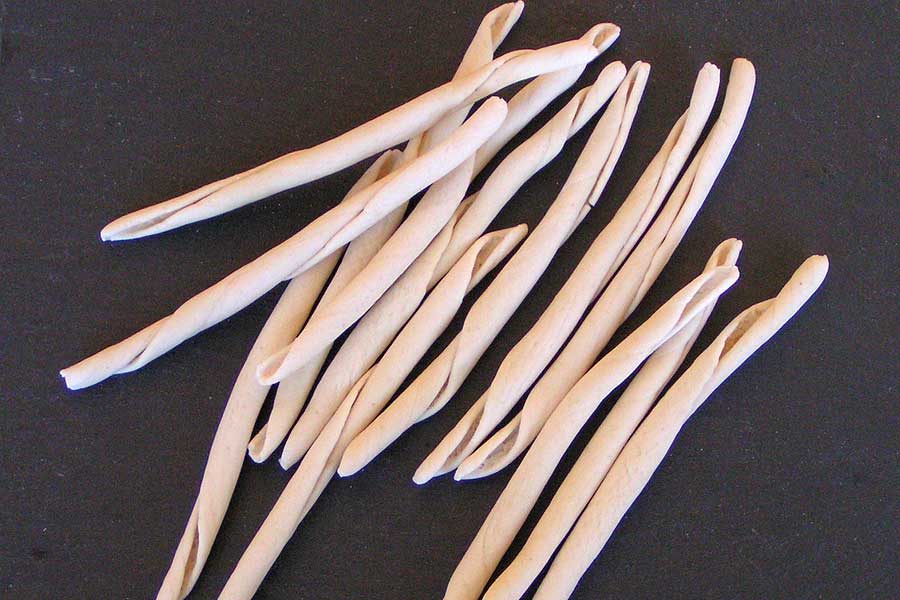Other Names: |
Region:Calabria |
Made with:Durum wheat, water and salt. |
About:Fileja Pasta: A Calabrian Twist on Traditional ShapesFileja, meaning “little threads” in the Calabrian dialect, hails from the southern Italian region of Calabria, specifically near the town of Tropea. Unlike many pastas with documented historical records, information about Fileja’s exact origins is scarce. However, its traditional production methods suggest a long-standing presence in the region, likely dating back several centuries. Handcrafted Tradition: Fileja is primarily known for being hand-shaped rather than machine-made. Traditionally, skilled pastaio (pasta makers) would roll out thin sheets of dough and then use a special tool (often a thin stick or even a spoke from a bicycle wheel) to roll the dough, creating the signature elongated, tubular shape.This labor-intensive process contributes to the unique character and texture of Fileja. Fileja’s long, thin shape, and slightly rough texture make it ideal for capturing flavorful sauces. It’s traditionally paired with hearty sauces: Ragu (meat sauce), Nduja (spicy sausage sauce), or other bold Calabrian specialties. It pairs well with broccoli rabe, sun-dried tomatoes, and other Mediterranean flavors. Due to its handmade nature, Fileja might be difficult to find outside of Calabria. But it is its handmade nature that gives it, an interesting chewy texture which is wonderful. While Fileja might not boast an extensive reputation outside of Italy, its unique production method and culinary significance make it a cherished part of Calabrian culinary heritage. |
||
Source:
|
Photo Credit: |
